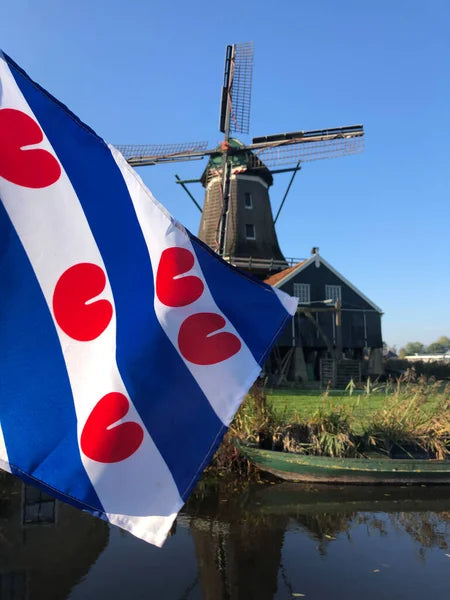The History of Portugal
The History of Portugal
Det gick inte att ladda hämtningstillgänglighet
"The History of Portugal" explores the important role that Portugal has played in world history through its exploration, colonization, and cultural contributions. Even though Portugal is a small country, its impact has been huge. During the Age of Exploration in the 15th and 16th centuries, Portuguese sailors like Prince Henry the Navigator, Vasco da Gama, and Bartolomeu Dias set out on daring voyages to find new trade routes to Asia and Africa. These journeys opened up new routes and helped Portugal build a vast overseas empire.
The book discusses how Portugal’s trade networks with Africa, Asia, and the Americas brought wealth to the country and helped its empire grow. Portuguese explorers were the first Europeans to reach places like India, China, and Japan, leading to the era of European colonialism. The influence of Portuguese colonization can still be seen today in the language and culture of many countries in Africa, Asia, and the Americas. Portugal also made important contributions in literature, cartography, navigation, and natural history, expanding European knowledge and advancing science.
Portugal's history is marked by periods of political and social change that influenced other countries. From the Christian Reconquista to the Carnation Revolution, Portugal’s fights for independence, democracy, and social justice have inspired others around the world. The book gives a full account of Portugal’s journey from ancient times to today, covering key events, people, and developments that have shaped its history and its place in the world.
"The History of Portugal" starts with an introduction that explains why Portugal is important in world history, focusing on its role in exploration, trade, and culture. The next chapters cover ancient Portugal, the Roman conquest, the Islamic period, and how Portugal became an independent nation. The book also looks at Portugal’s Age of Expansion, its Golden Age, the Iberian Union, the Enlightenment and Reform era, and the 19th century marked by political problems and social change.
Further chapters talk about the First Republic, Portugal’s role in World War I, the rise of the Estado Novo regime, the Carnation Revolution, and how Portugal joined the European Union. The book ends with a summary of Portugal’s history, thoughts on its national identity, and what might come next. It also includes extra resources like a timeline of key events, biographies of important people, a glossary of terms, and suggestions for further reading.
Overall, "The History of Portugal" aims to be a detailed and easy-to-read book for anyone interested in Portugal’s history, showing its impact on the world and its lasting cultural legacy.

Why Skriuwer.com?
-
Supporting Frisian Language
When you buy from Skriuwer, you're not just getting a book—you’re helping create more Frisian books and educational resources like LearnFrisian.com. Your support directly helps us preserve and grow the Frisian language for future generations.
-
Making Languages Accessible
We believe in making languages easy to learn and accessible. While Frisian is our passion, we also want to help people learn other key languages like Dutch and English by providing helpful resources and learning tools.
-
Investing in Future Projects
Your purchase fuels more than just current projects. It helps us dream big and plan for the future, whether that’s developing new books, launching language-learning platforms, or supporting other educational initiatives. You're helping us build something lasting!

Bevarande av det frisiska språket
På Skriuwer.com tror vi att det frisiska språket är mer än bara ord – det är en levande del av vårt arv. Men precis som många minoritetsspråk står frisiskan inför överlevnadsutmaningar i en ständigt föränderlig värld. Det är därför vår mission är enkel men avgörande: att hålla det frisiska språket levande och blomstrande för framtida generationer.
Varje bok vi skapar, varje berättelse vi berättar och varje ord vi publicerar är en del av en större insats för att bevara och fira den frisiska kulturen. Men vi kan inte göra det ensamma. Med din hjälp kan vi göra en verklig skillnad.

Hur Du Kan Hjälpa:
Köp en Bok: När du köper en av våra böcker lägger du inte bara till ett vackert litterärt verk i din samling – du stödjer direkt bevarandet av det frisiska språket. Varje bok hjälper till att sprida rikedomarna i vårt språk till fler människor. Du kan också bidra till denna sak genom att lära dig frisiskan via vår partnersida, www.learnfrisian.com.
Donera: Om du tror på vårt uppdrag kan du också göra en insats för att hjälpa oss att fortsätta vårt arbete. Oavsett om det handlar om att finansiera nya publikationer, stödja utbildningsprogram eller hjälpa oss att nå fler frisistalare, kan din donation ha en varaktig inverkan. Klicka bara på knappen nedan för att bidra!
Tillsammans kan vi säkerställa att det frisiska språket förblir en levande del av vår värld. Följ med oss på denna resa – ditt stöd idag innebär en ljusare framtid för vårt språk imorgon.

